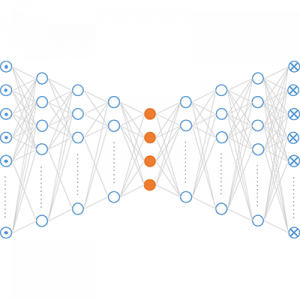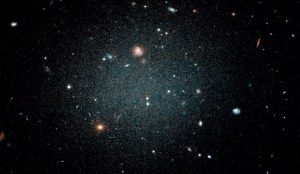
Research from the lab of Physics and Astronomy Professor Ehsan Khatami and his team of research students has been receiving a lot of attention lately (including in our Oct. 3 post). A recently article by Khatami and SJSU students Kevin Ch’ng and Nick Vazquez titled “Unsupervised machine learning account of magnetic transitions in the Hubbard model” published in Physical Review E has been featured on Kaleidoscope. This honor follows the announcement in December that Khatami will be honored as one of two Early Career Investigator Award winners by the SJSU Research Foundation. In her announcement of the award, Associate Vice President Pamela Stacks wrote:
“The SJSU Research Foundation Early Career Investigator Awards recognize tenure-track SJSU faculty who have excelled in areas of research, scholarship or creative activity (RSCA) as evidenced by their success in securing funds for RSCA, publishing in peer-reviewed journals, and carrying out other important scholarly and creative activities at an early or beginning point in their careers at SJSU. One award goes to a faculty member in the College of Science or the College of Engineering, and another is made to a faculty member from the other colleges combined. Each winner receives a cash award of $1,000 to be used at their discretion.
In the three years since he joined the Physics & Astronomy faculty, Ehsan Khatami has made remarkable contributions to the computational infrastructure and capabilities in the department and college; published extensively in the highest-ranked science journals, including one paper in Nature and two in Science, with co-authors from institutions like MIT, Harvard, and Princeton; and served as research mentor for seven undergraduate and six graduate students.
Dr. Khatami was hired to help expand the department’s offerings in computational physics throughout the curriculum. The first project he undertook was to build the department’s first modern high-performance computational cluster, which is used extensively by students enrolled in big-data courses and undertaking computational research. Because of his computational expertise, Dr. Khatami joined Dr. Sen Chiao as Co-PI on the successful NSF Major Research Instrumentation proposal that funded the $900K supercomputer now installed at the Research Foundation. He also was awarded a three-year NSF Research at Undergraduate Institutions grant for his project on “Disorder in Strongly Correlated Systems.”
Dr. Khatami and his students have expanded their research focus to apply machine learning techniques to the solution of complex quantum problems, and one of his graduate students has been the lead author on two papers, one already published and highlighted in Physical Review X. This paper is just one of the 12 published and two submitted papers that Dr. Khatami and his collaborators have produced since he arrived at SJSU.
In addition, Dr. Khatami has been recognized by others outside the institution. In 2016, he was named one of only seven Kavli Institute for Theoretical Physics (KITP) Scholars. This three-year visiting position is awarded to faculty at teaching-intensive institutions who engage in ongoing research activity, and provides support for six weeks of travel to the KITP program at UC Santa Barbara. He has given several invited talks and has participated in national and international conferences, all of which spread the word about the outstanding research being done at San José State University.”




 Image from JoVE Science Education Database.
Image from JoVE Science Education Database.